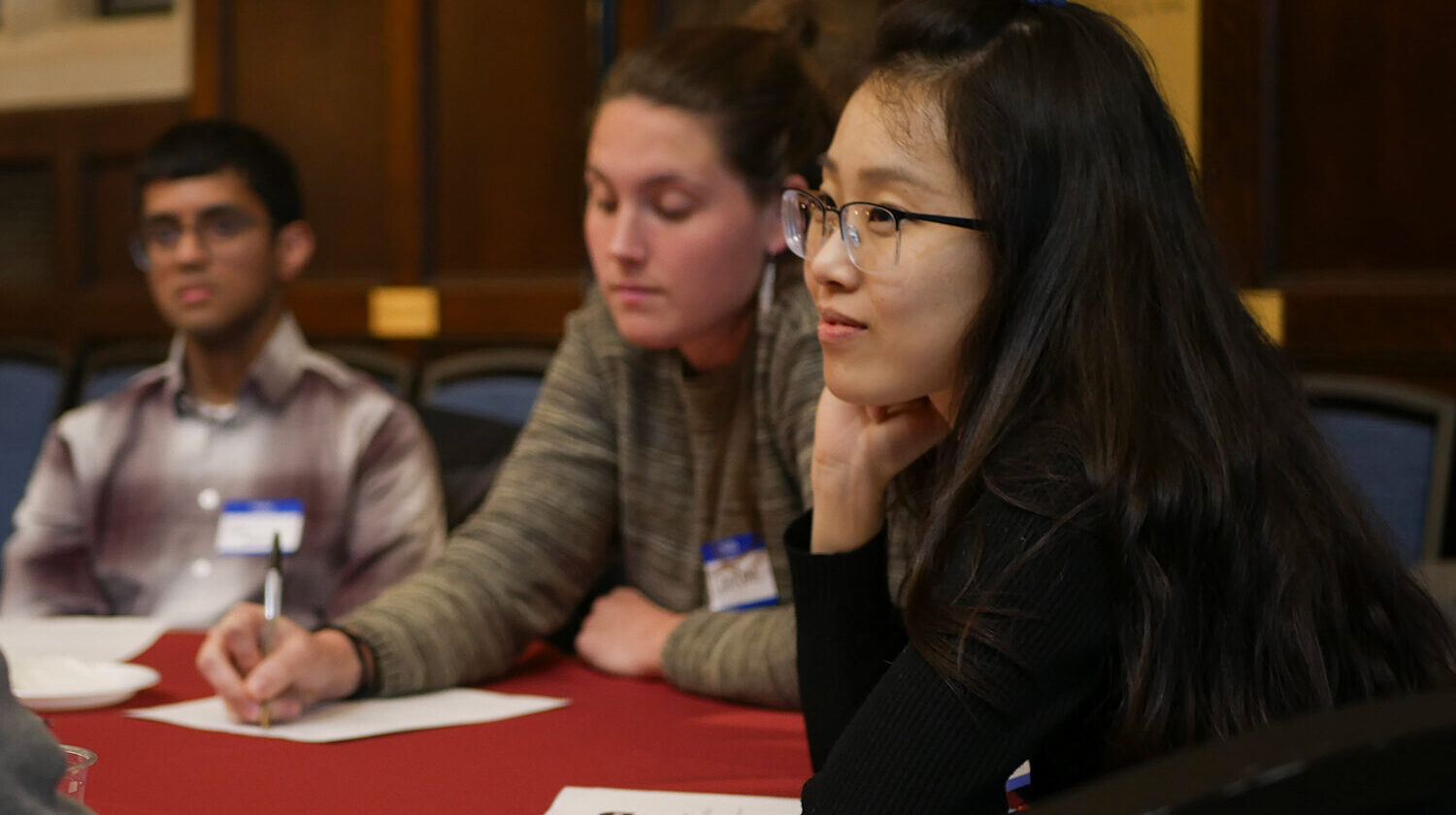The group of 20 inaugural fellows were selected for their commitment to “developing the knowledge, skills, and values needed for effective, ethical, and civil dialogue in a diverse world,” according to an announcement from the Paideia Program. The SNF Paideia Program, which began in spring 2019, is focused on integrating wellness, service, and civic education through dialogue.
Students apply to be fellows at the end of their freshman year and begin taking seminar classes designed for them in their sophomore year. Paideia Fellows must complete a senior capstone project and may also receive summer funding through the program.
Paideia Director Michael Delli Carpini said he hopes the fellows will acquire the skills necessary “to be a good participant and facilitator of dialogue.”
Incoming Paideia Fellow and rising College sophomore Avery Johnston said she learned about the Paideia program through a class taught by Professor Delli Carpini that she took her freshman year.
“Some of the main aspects of the [Paideia] program are focused on education of the whole individual and service for the community, as well as fostering civil debate and civic dialogue,” Johnston said. “Those are three things I’ve always been interested in.”
Paideia Fellow and rising College sophomore Joshua Baek said he is excited about the diversity of the incoming fellows. “Everyone is from a different background. Everyone is from a different place in the world. Everyone has a different career path,” he said. “It’s crazy to see how everyone’s interested in improving the world in one way or another.”
Baek added that he believes the program will allow him to learn about issues that students don’t explore in typical classes from an interdisciplinary perspective.
Along with its fellowship program, SNF Paideia has designed several interdisciplinary courses that are open to all undergraduates. Paideia-designated courses include “Grit Lab,” a psychology class that teaches students how to set and achieve long term goals, and “Rhetoric and the Community,” which helps students develop their speaking skills.
The program, created last year after Penn received a six-million-dollar donation from the Stavros Niarchos Foundation, is built around a core of 12 courses taught by leading faculty across many departments.
“We are hoping that we can act as a kind of hub so that we can leverage all the good work that’s already going on, and try to coordinate it a little more so that we can be a catalyst for making the culture at Penn more infused with this idea that one of the reasons you come to Penn is the opportunity to engage in civil and robust ways on issues of difference,” Delli Carpini said.

